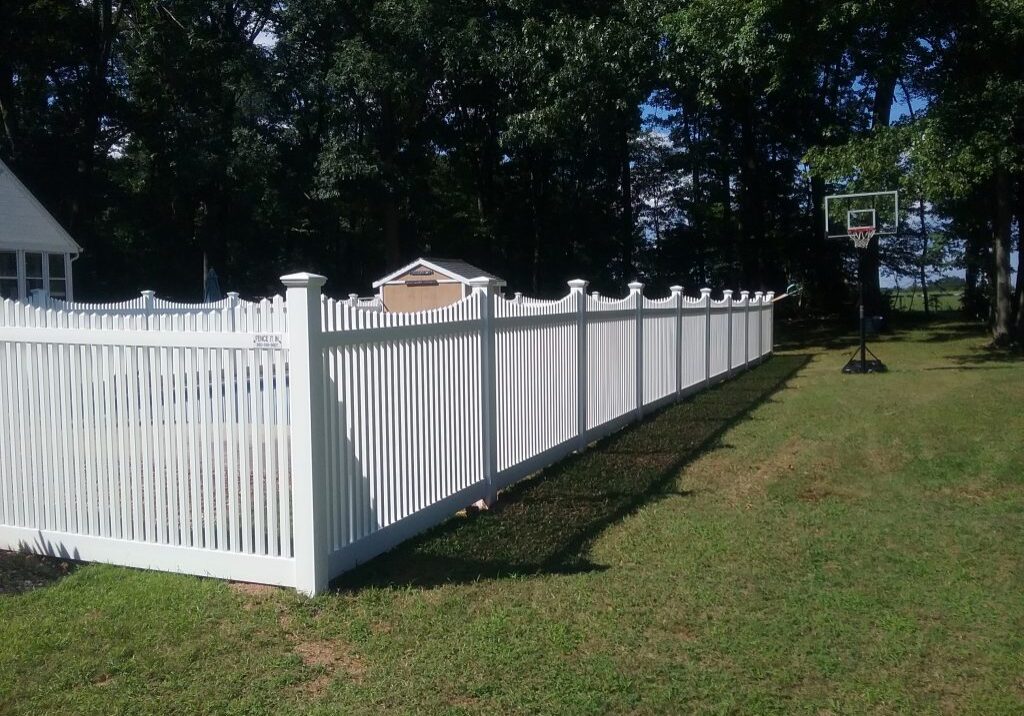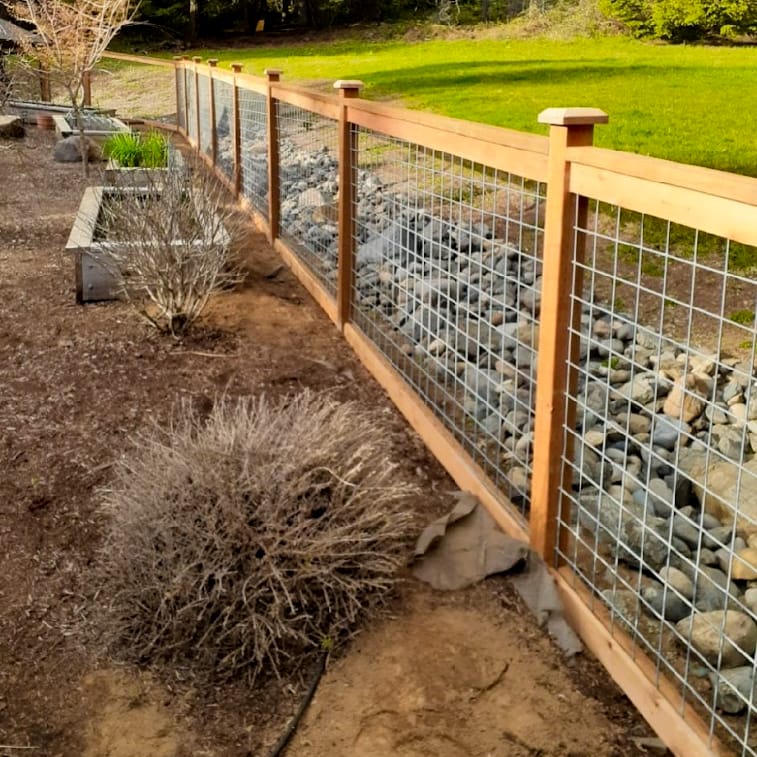All Categories
Featured

Picking the ideal secure fencing material is crucial for accomplishing the equilibrium of durability, looks, and performance that suits your building. Timber, plastic, and light weight aluminum are prominent choices, each with one-of-a-kind functions that accommodate details requirements. Here's an in-depth check out the benefits and drawbacks of these 3 products.
Timber Fence. Pros:. Ageless Allure: Wood offers an all-natural, timeless look that complements various architectural styles. Customizable: It can be repainted or stained in a variety of styles and colors. Budget-friendly: Timber fencings are typically less expensive upfront than plastic or light weight aluminum. Eco-Friendly: As a sustainable source, timber is sustainable and naturally degradable when sourced responsibly. Cons:. Maintenance-Intensive: Requires regular discoloration, painting, or sealing to safeguard versus climate and pests. Shorter Lifespan: Relying on the kind of wood and environment, it usually lasts 10-15 years. Susceptability to Damage: Prone to rotting, bending, and termite damage without proper care. Wood is perfect for property owners that value aesthetics and want to spend time and effort in maintenance to prolong its life.
Vinyl Fencing. Pros:. Resilient: Immune to parasites, rot, and climate, plastic preserves its framework in severe conditions. Low Upkeep: Needs little maintenance beyond periodic cleaning. Lengthy Lifespan: Vinyl can last 20-30 years without substantial wear or damage. Functional Designs: Available in various shades, structures, and styles, including options that resemble timber. Disadvantages:. Pricey Installation: Vinyl fencings are more costly to mount contrasted to timber. Brittle in Winter: Plastic can split in extreme chilly climates. Difficult to Repair service: If damaged, entire areas may need replacement, which can be challenging to match. Vinyl fencing is a great choice for those focusing on durability and marginal upkeep, even if it features a higher upfront expense.

Light Weight Aluminum Fence. Pros:. Rust-Resistant: Light weight aluminum does not corrosion, making it excellent for moist or humid locations. Lightweight however Solid: Deals stamina without being extremely heavy, which simplifies installment. Low Upkeep: Needs little even more than cleansing and occasional repainting. Durability: Aluminum fences can last for years without significant degeneration. Sophisticated Styles: Often made use of for attractive objectives, aluminum adds class to any type of residential or commercial property. Cons:. High First Expense: Light weight aluminum fences are among the a lot more costly options. Minimal Privacy: Frequently designed with open areas, they do not obstruct sights or sound. Susceptible to Damages: While tough, aluminum can be dented or bent with heavy impact. Aluminum is ideal fit for those who want a long-lasting, trendy fence and do not need total privacy.
Making the Right Option. Each product has its toughness and weak points:

Timber is ideal for eco-conscious purchasers and standard visual appeals who do not mind maintenance. Vinyl benefits home owners looking for a weather-resistant, low-maintenance option. Light weight aluminum is a resilient, decorative option for those who want elegance and long life. Consider your top priorities-- whether it's expense, privacy, appearance, or maintenance-- and speak with a fencing professional to choose the material that best satisfies your requirements. A well-selected fencing will boost your property for several years to come.
Latest Posts
Sophisticated, Long Lasting Tile Floor Covering for Every Space
Published Apr 21, 25
1 min read
The Convenience and Performance of Charging Your EV
Published Apr 21, 25
1 min read
Benefits of NAPA AutoCare? Montclare Auto Repair Delivers the Best Service
Published Apr 21, 25
2 min read
More
Latest Posts
Sophisticated, Long Lasting Tile Floor Covering for Every Space
Published Apr 21, 25
1 min read
The Convenience and Performance of Charging Your EV
Published Apr 21, 25
1 min read
Benefits of NAPA AutoCare? Montclare Auto Repair Delivers the Best Service
Published Apr 21, 25
2 min read